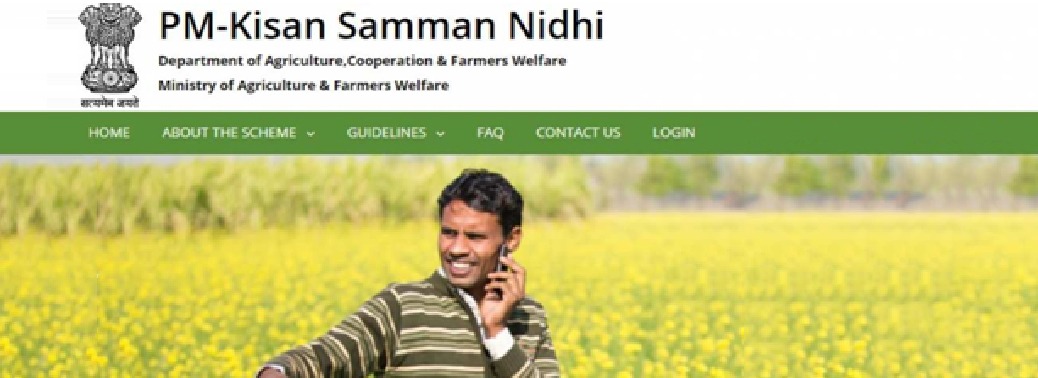PRADHAN MANTRI KISAN SAMMAN NIDHI SCHEME
11, Oct 2019

Prelims level : Governance- Schemes, Policies
Mains level : GS-II- Government policies and interventions for development in various sectors and issues arising out of their design and implementation.
Why in News?
- Recently Cabinet has approved for the relaxation of Aadhaar seeding for the beneficiaries under Pradhan Mantri Kisan Samman Nidhi (PM-Kisan).
Background:
- Under the PM-Kisan scheme funds are released on the basis of Aadhaar seeded database.
- However, it has not been possible to get 100% Aadhaar seeding for release of funds as per the prescribed time schedule before release of instalments.
- So, in order to avoid any fore coming issues, government has taken the above step in a Proactive Manner.
About Pradhan Mantri Kisan Samman Nidhi Scheme:
- With a view to provide income support to all land holding eligible farmer families, the Government has launched PM-KISAN. The scheme aims to supplement the financial needs of the farmers in procuring various inputs to ensure proper crop health and appropriate yields, commensurate with the anticipated farm income.
- Under this programme, vulnerable landholding farmer families, having cultivable land upto 2 hectares, will be provided direct income support at the rate of Rs. 6,000 per year.
- This income support will be transferred directly into the bank accounts of beneficiary farmers, in three equal instalments of Rs. 2,000 each.
- The complete expenditure of Rs 75000 crore for the scheme will borne by the Union Government in 2019-20.
Why it is Needed?
- Declining prices of agricultural commodities in the international market and fall in food inflation in India since 2017-18, relative to non-food sector, therefore reduced the returns from farming.
- To increase the income of farmers as small and fragmented land holdings and their further divisions has contributed in declined income.
- To provide structured income support for procuring inputs such as seeds, fertilizers, equipment, labour and other needs.
- Around 12 crore small and marginal farmer families are expected to benefit from this.
What is a small and Marginal Landholder Family?
- It comprises of husband, wife and minor children up to 18 years of age, who collectively own cultivable land up to two hectares as per the land records of the concerned states.
Similar Programmes by States:
1. KALIA or “Krushak Assistance for Livelihood and Income Augmentation” scheme of Odisha The aim of the scheme is to accelerate agricultural prosperity and reduce poverty in the State payments to encourage cultivation and associated activities. The scheme is being seen as a viable alternative to farm loan waivers.
2. Bhavantar Bhugtan Yojana in Madhya Pradesh
- This was sought to provide relief to farmers by providing the differential between MSPs and market prices.
3. Rythu Bandhu scheme (Telangana)
- It is a welfare program to support farmer’s investment for two crops a year. The government is providing 58.33 lakh farmers, Rs.4000 per acre per season to support the farm investment, twice a year, for rabi and kharif seasons. This was the first direct farmer investment support scheme in India, where the cash is paid directly.
Benefits of the scheme to Farmers:
- Immediate impact is on reducing hunger and rural poverty.
- Income support can be used to make a repayment or at least activate a bank account which can then receive a loan.
- Increased investment in agricultural inputs, including farm implements and livestock.
- Help households to overcome credit constraints and manage risk. This can increase productive investment, increase access to markets and stimulate local economies.
- Serve as an important complement to a broader rural development agenda, including a pro-poor growth strategy focusing on agriculture.
Challenges with Cash Transfers- Criticisms:
- Absolving From Responsibilities: A targeted cash transfer scheme envisions the role of the state to only providing cash income to the poor. This kind of approach seeks to absolve the state of its responsibility in providing basic services such as health, education, nutrition and livelihood.
- DBT not an alternative to Subsidies: Cash transfer scheme cannot be substituted for subsidies and other institutional support systems. In fact, such cash transfer schemes could be counter productive and may lead to more distress.
- Not an alternative to Structural Reforms: Cash transfer is neither a substitute for the structural reforms needed in agriculture, nor does it adequately compensate the farmer for the risks and uncertainty of crop cultivation.
- Absence of proper tenancy records: Such a scenario only benefits the absentee landlords.






